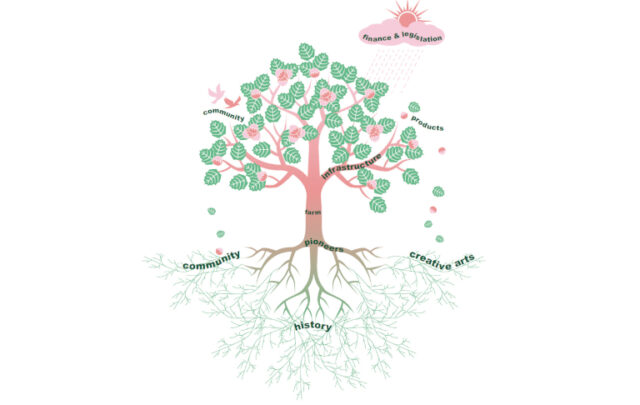
From local currencies to time banks, more and more people and organisations are setting up new forms of exchange in a bid to tackle the social, economic and environmental problems they see in their communities.
But are they working? Things are still a little hazy in the community currency (CC) world when it comes to impact. Just like any other kind of grassroots innovation, the demanding day to day running of CC projects makes it easy for impact evaluation to slip right off organisers’ list of priorities.
This may sound trivial, but the resulting overall lack of properly evaluated CC projects is bad news on several counts: it makes it tricky for organisers to learn from other projects, for instance, or win more funding, credibility and media attention for what they are doing.
That’s why today NEF is releasing ‘No Small Change’ – a how-to guide for community currency organisers looking to effectively evaluate the impact of their project. The guide highlights the value of pausing to ask what your currency project is aiming to achieve, and how this can be measured – and offers practical advice on going about it.
Click here to download No Small Change.
After all, the results of an effective project evaluation can speak volumes. Take the community time-credit systems up and running in South Wales, where one hour of time given to a community cause earns one credit that can be used to access cultural, leisure or educational activities. Their early impact evaluation has found that over two thirds of those taking part in the time bank claim it has improved their quality of life. 45% of people involved feel less isolated, 64% feel more able to influence what their community is like and 63% feel more positive about their future. You can hear stories from some of those taking part here.
We’ll be releasing more data and case studies from currency pilots based in France, Belgium, Holland and the UK over the year, as part of an ongoing North West European collaboration, ‘Community Currencies in Action’.
Political and media interest in the field is mounting, partly spurred on by high profile digital currencies like Bitcoin. This makes it all the more important that socially valuable currencies are able to shout about the impact they are having, and avoid being drowned out by news of new markets and profit opportunities in the booming payments services and e-money industries.
We’re talking about impact not just in straight economic terms, but impact more broadly – such as how the everyday running of a small business might improve with the use of a new digital payment system provided by a local currency, or how an elderly resident might feel more connected to their neighbours because of a time banking scheme. Part of the success of community currencies is how they are embedded in people’s day to day lives, so it’s crucial to develop ways to capture these changes that can easily go undetected.
Devising your theory of change
This is why we’ve proposed a technique called ‘Theory of Change’ for evaluating the mixture of community currencies out there. It’s an evaluation method that involves getting together with a wide range of project stakeholders and working out exactly what building blocks must be put in place in order to reach your long term goals.
A long term goal, for example, might be more jobs for a local area – whereas a key short term building block for achieving this could be freeing up the balance sheets of small businesses through enabling them to exchange supplies with other local traders.
The guide and online toolkit we’ve put together serve as a starting point for projects of all scales and budgets to work out how best to capture their impact. We emphasise the importance involving the full range of people impacted by the currency, asking questions like What changes can the project make? How can these effects be measured? and most importantly, Why do these matter?
We hope it will be of great value to anybody working to help socially valuable currencies take off in their communities, and would love to hear what you think























